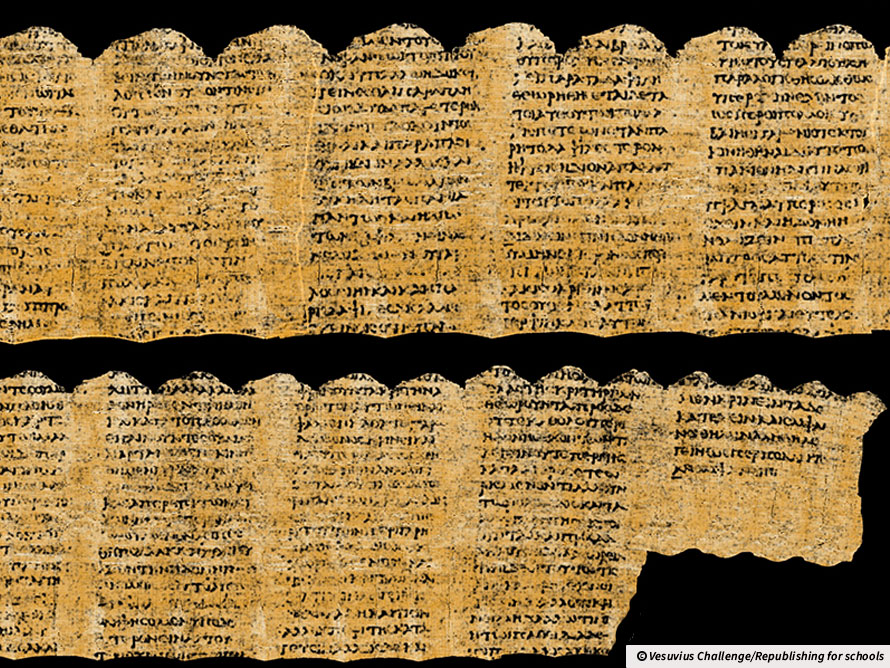Could this rewrite our history? Three students and an AI programme have found a way to read a set of ancient books — for the first time in 2,000 years.
Unlocked: 2,000-year-old blog on life’s joys
 Out of the ashes: The scrolls come from a single library preserved by the volcanic ash.
Out of the ashes: The scrolls come from a single library preserved by the volcanic ash. Glossary
Ancient - Very old.
Aristotle - A student of Plato, tutor to Alexander the Great and the father of political philosophy.
Roman Empire - Lasting from 27BC to 476AD, the Roman Empire controlled regions around the Mediterranean in Europe, North Africa and Western Asia.
Arab - Arabia includes the countries on the coast of north Africa (from Morocco in the north-west) and the Arabian peninsula. It does not include Iran, which is in Asia but which is the most significant supporter of Shia Islam.
Experts - Someone who knows a lot about a particular subject.
Herculaneum - An ancient city that was buried under volcanic ash after the eruption of Vesuvius in AD79. It is close to Pompeii.
Vesuvius - a volcano near Naples, southern Italy. It erupted in 79 AD, destroying the Ancient Roman cities of Herculaneum and Pompeii.
Eruption - An act or instance of erupting.
CT scan - A computed tomography scan — a medical imaging technique usually used to make images of inside the body.
AI - A computer programme that has been designed to think.
Philosopher - A thinker who comes up with ideas about big questions in life.
